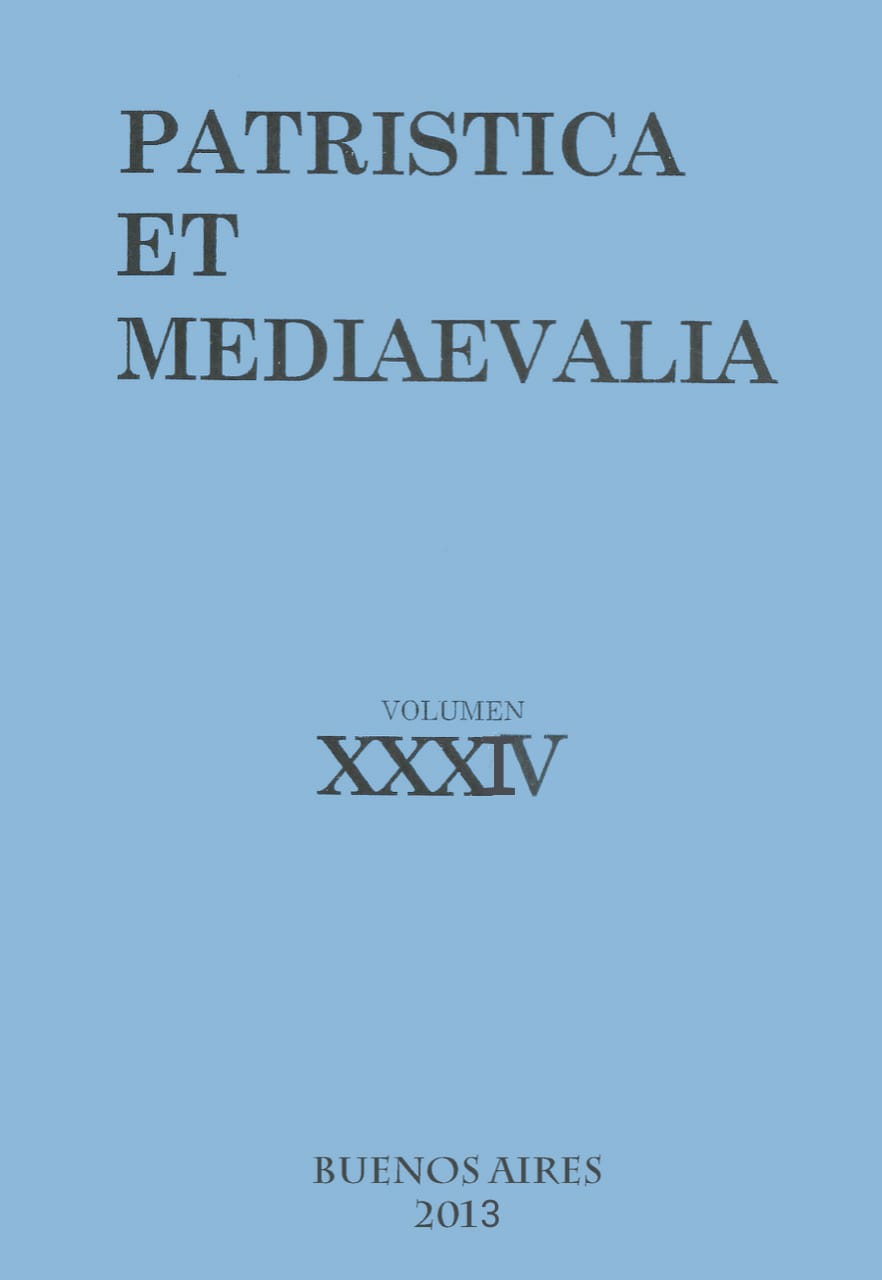Cómo hacer cosas con ideas. El carácter activo del conocimiento en las noéticas de Avicena y Tomás de Aquino
Resumen
El objetivo de este trabajo es examinar una creencia ampliamente difundida: la aparición de un Dios Creador en el horizonte intelectual de la Edad Media habría llevado a una imagen un tanto pasiva tanto del conocimiento como de quien conoce, y habría producido una consolidación ontológica de la res sensibilis. Para discutir esto, analizaremos algunos puntos significativos de la noética de Avicena y Tomás de Aquino. Trataremos de probar la siguiente hipótesis: es posible sostener que Dios Creador –en tanto Intelecto divino– ofreció a la noética medieval un modelo para el intelecto humano, que llevó, así, a una lectura mucho más activa de este.Descargas
Citas
Black, D. (2005). Physchology: should and intellect. En Adamson, P. & Taylor, R. (ed). The Cambridge Companion to Arabic Philosophy. Cambridge: Cambridge University Press.
Black, D. (2010). Intentionality in Medieval Arabic Philosophy. Quaestio, 10, 65-81.
Black, D. Arabic Theories of Intentionality and their Impact in the Latin West. Online Articles University of Toronto.
Capuzzo, L. (2011). La dottrina del verbum mentis di Tommaso d’Aquino e le polemiche francescane del XIII secolo. Tessi di dottorato. Università di Padova.
Crowe, F. SJ & Doran, R. SJ (ed) (1997). Verbum: Word and idea in Aquinas, vol. 2. Collected Works of Bernard Lonergan. Toronto: University of Toronto Press.
Davidson, H. (1992). Alfarabi, Avicenna, and Averroes, on Intellect. Their cosmologies, theories of the active intellect, and theories of human intellect. Oxford: Oxford University Press.
De Libera, A. (1996). La Querelle des universaux. De Platon à la fin du Moyen Âge. Paris: Seuil.
Filippi, S. (2012). Razones teológico-metafísicas del realismo aristotélico medieval. Studium. Filosofía y Teología, 29, 101-116.
Floucat, Y. (1997). L’intellection et son verbe selon saint Thomas d’Aquin. Revue Thomiste, 97, 443-484.
García López, J. (2001). Metafísica atomista: ontología, gnoseología y teología natural. Pamplona: EUNSA.
Gilson, E. (1957). Le thomisme. Introduction à la philosophe de Saint Thomas d’Aquin. Paris: Vrin.
Guerrero, R. (1984). En el centenario de E. Gilson: Las fuentes árabes del agustiniano avicenizante y el de Alejandro de Afrodisia. Anales del Seminario de Historia de la Filosofía, 4, 83-106.
Guerrero, R. (2004). Filosofías árabe y judía. Madrid: Trotta.
Gutas, D. (2012). Avicenna: The Metaphysics of the Rational Soul. The Muslim World, 102, 417-425.
Gilson, E. (1981). El espíritu de la Filosofía Medieval. Madrid: Rialp.
Lagerlund, H. Mental Representation in Medieval Philosophy. En Stanford Encyclopedia of Philosophy. En línea.
Marmura, M. (2005). Quiddity and Universality in Avicenna. En Marmura, M. Probing in Islamic Philosophy. Studies in the Philosophies of Ibn Sina, al-Ghazali and Other Major Muslim Thinkers. Binghamton/New York: Global Academic Publishing, 61-70.
Michon, C. (2009). Les représentations rendent-elles indirecta la connaissance des choses?. En Biard, J. (ed). Le langage mental du Moyen Âge à l’Âge Classique. Louvain: Peeters Publishers, 45-60.
O’Callaghan, J. (2000). Verbum Mentis. Philosophical or Theological Doctrine in Aquinas?. Proceedings of the American Catholic Philosophical Association, 74, 103-119.
O’Callaghan, J. (2003). More Words on the Verbum. A Response to James Doig. American Catholic Philosophical Quarterly, 77(2). 257-268.
Palacio, C. (2001). Aquinas on intelectual representation. En Perler, D. (ed). Ancient and Medieval Theories of Intentionality. Leiden: Brill, 185-201.
Pasnau, R. (1997). Theories of cognition in the later Middle Ages. Cambridge: Cambridge University Press.
Pasnau, R. (2003). Mind and Knowledge (The Cambridge translations of Medieval Philosophical Text, vol. 3). Cambridge: Cambridge University Press.
Perler, D. (2000). Essentialism and Direct Realism: Some Late Medieval Perspectives. Topoi, 19, 111-122.
Sebti, M. (2000). Avicenne. L’ame humaine. Paris: PUF.
Sebti, M. (2005). Le statut ontologique de l’image dans la doctrine avicennienne de la perception. Arabic Sciences and Philosophy, 15, 109-140.
Spruit, L. (1995). Species Intelligibilis: From Perception to Knowledge : Ii. Renaissance Controversies, Later Scholasticism, and the Elimination of the Intelligible S (Brill's Studies in Intellectual History). Leiden: Brill.
Verbeke, G. (1968). Le ‘De Anima’ d’Avicenne, une conception spiritualiste de l’homme. En Avicenna Latinus / Liber de Anima seu Sextus de Naturalibus IV-V, 46*-59*.
1. Los/as autores/as que publiquen en esta revista aceptan las siguientes condiciones:
-
Conservan los derechos de autor/a y ceden a la revista el derecho de la primera publicación, con el trabajo registrado con Licencia Atribución-CompartirIgual 4.0 Internacional, que permite a terceros utilizar lo publicado siempre que mencionen la autoría del trabajo y a la primera publicación en esta revista.
-
Pueden realizar otros acuerdos contractuales independientes y adicionales para la distribución no exclusiva de la versión del artículo publicado en esta revista (p. ej., incluirlo en un repositorio institucional o publicarlo en un libro) siempre que indiquen claramente que el trabajo se publicó por primera vez en esta revista.
-
Tienen permitido y se les recomienda publicar su trabajo en Internet (por ejemplo en páginas institucionales o personales).
2. Condiciones de auto-archivo. Se permite y se anima a los/as autores/as a difundir electrónicas la versión post-print de sus obras ya que favorece su circulación y difusión y con ello un posible aumento en su citación y alcance entre la comunidad académica. Color RoMEO: azul.













